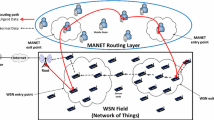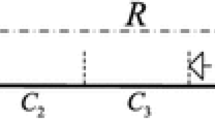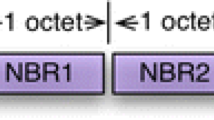Abstract
Recent advances in wireless technology lead to the possibility to explore new Internet connectivity models derived from the willingness of the end-user to share some Internet services. These networking architectures, known as User-centric Networks, introduce the Internet end-user as an active network controller, as part of the devices used in user-centric networking are devices carried and controlled by Internet end-users. The devices that are owned by end-users are portable, have limited storage as well as are limited in terms of battery capacity. Due to this, user-centric networks exhibit topological variability as the network dynamics follow a human tendency related with the willingness to share resources. In such context it is relevant to consider that routing approaches require robustness in regards to the limited energy capability of the devices. This is the topic addressed in this chapter, namely, how to keep current multihop routing approaches and yet provide them with features that make the network lifetime increase, based on energy-awareness concepts. The chapter covers notions and concepts concerning multihop routing energy-awareness; shows how to develop and how to apply energy-awareness in the most popular multihop routing protocols, providing also input concerning performance evaluation, as well as realistic specification that can be used in operational scenarios, showing that the proposed approaches are fully backward compatible with current solutions.
Access this chapter
Tax calculation will be finalised at checkout
Purchases are for personal use only
Similar content being viewed by others
References
Aldini, A., Bogliolo, A.: User-centric Networking - Future Perspectives. Lecture Notes in Social Networking. Springer, New York (2014)
Banerjee, N., Rahmati, A., Corner, M.D., Rollins, S., Zhong, L.: Users and batteries: interactions and adaptive energy management in mobile systems. In: Krumm, J., Abowd, G.D., Seneviratne, A., Strang, T. (eds.) UbiComp 2007. LNCS, vol. 4717, pp. 217–234. Springer, Heidelberg (2007)
Chama, N., Sofia, R.: A discussion on developing multihop routing metrics sensitive to node mobility. J. Commun. 6, 56–57 (2011)
Chang, J.H., Tassiulas, L.: Energy conserving routing in wireless ad-hoc networks. In: Proceedings of Nineteenth Annual Joint Conference of the IEEE Computer and Communications Societies (INFOCOM 2000), vol. 1, pp. 22–31. IEEE (2000)
Clausen, T., Dearlove, C., Jacquet, P., Herberg, U.: The optimized link state routing protocol version 2. draft-ietf-manet-olsrv2-19 (Work in progress) (2013)
Clausen, T., Jacquet, P.: Optimized link state routing protocol (OLSR). RFC 3626, Internet Engineering Task Force (2003)
Dhir, A., Kaur, P., Jere, N., Albidewi, I.: Understanding mobile phone battery - human interaction for developing world a perspective of feature phone users in africa. In: 2012 2nd Baltic Congress on Future Internet Communications (BCFIC), pp. 127–134 (2012)
Dohler, M., Watteyne, T., Winter, T., Barthel, D.: Routing requirements for urban low-power and lossy networks. RFC 5548, IETF (2009)
Feeney, L., Nilsson, M.: Investigating the energy consumption of a wireless network interface in an ad hoc networking environment. In: INFOCOM 2001 - Proceedings of Twentieth Annual Joint Conference of the IEEE Computer and Communications Societies, vol. 3, pp. 1548–1557. IEEE (2001)
FON: Wifi community. http://www.fon.com
Garcia-Saavedra, A., Serrano, P., Banchs, A., Bianchi, G.: Energy consumption anatomy of 802.11 devices and its implication on modeling and design. In: Proceedings of the 8th International Conference on Emerging Networking Experiments and Technologies (CoNEXT 2012), pp. 169–180. ACM, New York (2012)
Gomez, K.M., Sengul, C., Bayer, N., Riggio, R., Rasheed, T., Miorandi, D.: Achilles and the tortoise: Power consumption in IEEE 802.11n and IEEE 802.11g networks. In: IEEE Online Conference on Green Communications. IEEE (2013)
Oliveira Jr., A., Sofia, R., Costa, A.: Energy-awareness in multihop routing. In: 2012 IFIP Wireless Days (WD), pp. 1–6 (2012)
Oliveira Jr., A.: Energy-aware metrics for multihop routing, ns2 module. COPE-SITI-SW-13-06 (2013). http://copelabs.ulusofona.pt/scicommons/index.php/publications/show/573
Junior, A., Sofia, R.: Energy-awareness metrics global applicability guidelines. IETF Internet Draft, draft-ajunior-roll-energy-awareness-01 (working in progress) (2014). http://datatracker.ietf.org/doc/draft-ajunior-roll-energy-awareness/
Junior, A., Sofia, R.: User-centric routing. Thesis Proposal, 2nd Doctoral MAP-i Symposium, Faculty of Science, Department of Computer Science, Porto University (2009)
Kamgueu, P.O., Nataf, E., Djotio Ndié, T., Festor, O.: Energy-based routing metric for RPL. Rapport de recherche RR-8208, INRIA (2013). http://hal.inria.fr/hal-00779519
Karkazis, P., Leligou, H., Sarakis, L., Zahariadis, T., Trakadas, P., Velivassaki, T., Capsalis, C.: Design of primary and composite routing metrics for rpl-compliant wireless sensor networks. In: 2012 International Conference on Telecommunications and Multimedia (TEMU), pp. 13–18 (2012)
Kim, D., Garcia-Luna-Aceves, J.J., Obraczka, K., Cano, J.C., Manzoni, P.: Routing mechanisms for mobile ad hoc networks based on the energy drain rate. IEEE Trans. Mobile Comput. 2(2), 161–173 (2003)
Perkins, C.E., Ratliff, S., Dowdell, J.: Dynamic MANET On-demand (AODVv2) Routing. draft-ietf-manet-aodvv2-03 (working in progress) (2014)
Perkins, C.E., Belding-Royer, E.M., Das, S.R.: Ad hoc on-demand distance vector (aodv)routing. RFC Experimental 3561, Internet Engineering Task Force (2003)
Rhee, I., Shin, M., Hong, S., Lee, K., Kim, S., Chong, S.: CRAWDAD data set ncsu/mobilitymodels (v. 2009–07-23) (2009). http://crawdad.cs.dartmouth.edu/ncsu/mobilitymodels
Ros, F.J.: UM-OLSR. http://masimum.dif.um.es/?Software:UM-OLSR
Serrano, P., De La Oliva, A., Patras, P., Mancuso, V., Banchs, A.: Greening wireless communications: status and future directions. Comput. Commun. 35(14), 1651–1661 (2012)
Singh, S., Woo, M., Raghavendra, C.S.: Power-aware routing in mobile ad hoc networks. In: MobiCom 1998: Proceedings of the 4th Annual ACM/IEEE International Conference on Mobile Computing and Networking, pp. 181–190. ACM, New York (1998)
Sofia, R., Mendes, P.: User-provided networks: consumer as provider. IEEE Commun. Mag. Feature Topic Consum. Commun. Netw. Gaming Entertain. 46(12), 86–91 (2008)
Toh, C.K.: Maximum battery life routing to support ubiquitous mobile computing in wireless ad hoc networks. IEEE Commun. Mag. 39(6), 138–147 (2001)
Winter, T., Thubert, P., Brandt, A., Hui, J., Kelsey, R., Levis, P., Pister, K., Struik, R., Vasseur, J., Alexander, R.: RPL: IPv6 routing protocol for low-power and lossy networks. RFC 6550, IETF (2012)
ULOOP: User-centric Wireless Local-Loop. European IST FP7 Project X, grant number 257418) (2010–2013). http://uloop.eu
Vasseur, J., Kim, M., Pister, K., Dejean, N., Barthel, D.: Routing metrics used for path calculation in low-power and lossy networks. RFC 6551, IETF (2012)
Warty, N., Sheshadri, R.K., Zheng, W., Koutsonikolas, D.: A first look at 802.11n power consumption in smartphones. In: Proceedings of the First ACM International Workshop on Practical Issues and Applications in Next Generation Wireless Networks, PINGEN 2012, pp. 27–32. ACM, New York (2012)
Xie, Q., Lea, C.T., Golin, M., Fleischer, R.: Maximum residual energy routing with reverse energy cost. In: GLOBECOM 2003- IEEE Global Telecommunications Conference, vol. 1, pp. 564–569 (2003)
Acknowledgments
We thank all of the elements involved in the following projects: UCR, User-centric Routing (http://copelabs.ulusofona.pt/~ucr, 2010–2013), which involved COPELABS and University of Coimbra, Portugal; the European ULOOP - User-centric Wireless Local Loop (http://uloop.eu) project, scientifically coordinated by COPELABS, managed by Alcatel-Lucent BellLabs France, and including a total of 11 partners. We also thank Fundação Ciência e Tecnologia (FCT) scholarship SFRH/ BD/44005/2008 and the Cost Action WiNeMo - IC0906. We also thank to Fundação de Amparo a Pesquisa do Estado de Goiás (FAPEG).
Author information
Authors and Affiliations
Corresponding author
Editor information
Editors and Affiliations
Rights and permissions
Copyright information
© 2014 Springer International Publishing Switzerland
About this chapter
Cite this chapter
Oliveira-Jr, A., Sofia, R. (2014). Energy-Awareness in Multihop Routing. In: Ganchev, I., Curado, M., Kassler, A. (eds) Wireless Networking for Moving Objects. Lecture Notes in Computer Science(), vol 8611. Springer, Cham. https://doi.org/10.1007/978-3-319-10834-6_8
Download citation
DOI: https://doi.org/10.1007/978-3-319-10834-6_8
Published:
Publisher Name: Springer, Cham
Print ISBN: 978-3-319-10833-9
Online ISBN: 978-3-319-10834-6
eBook Packages: Computer ScienceComputer Science (R0)




